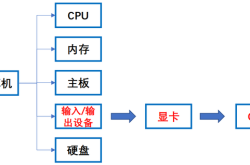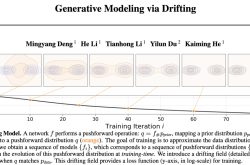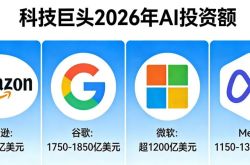Although advanced intelligent driving is appealing, I don't want to spend an extra cent
![]() 11/18 2024
11/18 2024
![]() 563
563
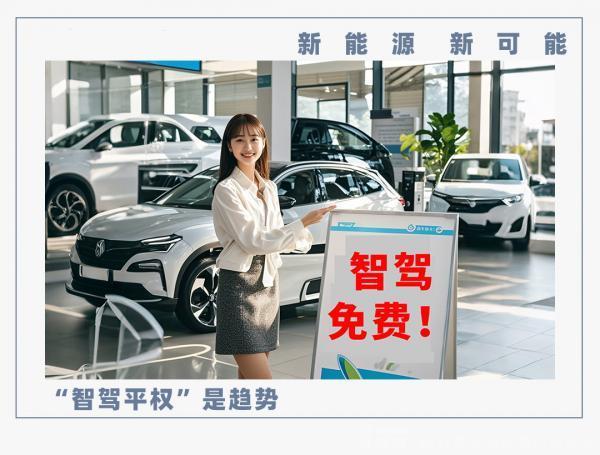
New Energy View (ID: xinnengyuanqianzhan) original
3072 words in full text, 8 minutes to read
'From parking space to parking space, ready to use as soon as you get in.'"
The 2024 Guangzhou Auto Show is in full swing. On the media open day on November 15, Lei Jun, founder and chairman of Xiaomi Group, introduced Xiaomi's autonomous driving technology, saying, "From parking space to parking space, ready to use as soon as you get in."
Subsequently, Lei Jun demonstrated Xiaomi's advanced intelligent driving video to the media and netizens present and announced, "From now on, Xiaomi's most advanced intelligent driving will be named 'XIAO MI HAD.'"
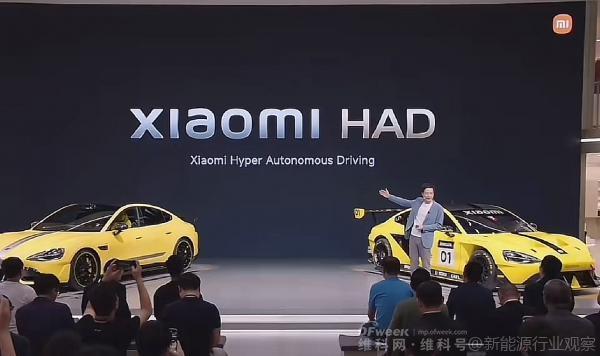
Image/Xiaomi HAD
Source/Internet New Energy View screenshot
It is reported that a total of 1,171 vehicles are on display at this year's Guangzhou Auto Show, including 512 new energy vehicles and 78 global premieres. Among the many models, 'intelligent driving' is an eye-catching highlight, especially when prefaced with the word 'advanced,' making it one of the biggest differences between this year's Guangzhou Auto Show and others.
From 'end-to-end' and 'AI intelligent driving' to supporting 'automatic overtaking,' 'automatic lane changing,' 'automatic distance maintenance,' and 'driving without maps'… These technologies have undoubtedly become powerful tools for automakers to attract fans.
However, when consumers see that they need to pay extra for these features, advanced intelligent driving suddenly becomes 'unappealing.'
1. Advanced Intelligent Driving Becoming a New Gimmick?
As the penetration rate of new energy vehicles continues to increase in China, the direction of automakers' competition has shifted from a single 'price war' to 'intelligent driving,' which consumers are increasingly concerned about.
Especially with the mass deployment of Tesla and XPeng's end-to-end large models, advanced intelligence has become one of the breakthrough points that automakers compete for and heavily promote.
At the 2024 Guangzhou Auto Show, many automotive brands showcased their latest intelligent driving technologies. This includes but is not limited to GAC Toyota, the Junjie model jointly launched by Huawei and JAC Motors, and BYD, which does not have a significant advantage in intelligent driving.
Although these advanced intelligent driving solutions differ in models and technologies, they share a common point: they have become important selling points to attract consumers.
As the curtain of the Guangzhou Auto Show rises, the Boxi 3X, equipped with the L2++ level end-to-end intelligent driving system jointly developed by GAC Toyota and Momenta, has finally become more familiar to consumers. It is reported that the Boxi 3X is GAC Toyota's first end-to-end intelligent driving model without maps, capable of full-scene intelligent driving functions.
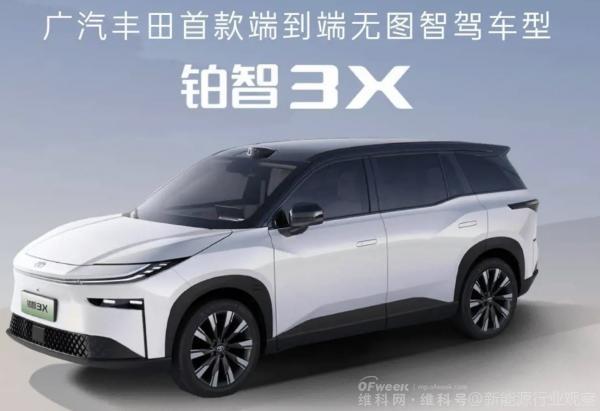
Image/Boxi 3X
Source/Internet New Energy View screenshot
In addition to joint-venture automakers aiming to 'turn around' with advanced intelligent driving, independent automakers are also not idle.
The Junjie model, a collaboration between Huawei and JAC Motors, is positioned in the million-yuan luxury car market. Compared to labels like Huawei and luxury cars, the 'Huawei Qiankun ADS 3.0 Advanced Intelligent Driving Solution,' hailed as the first tier of intelligent driving solutions equipped on the Junjie model, will undoubtedly be one of the engines driving its conquest of the ultra-luxury market.
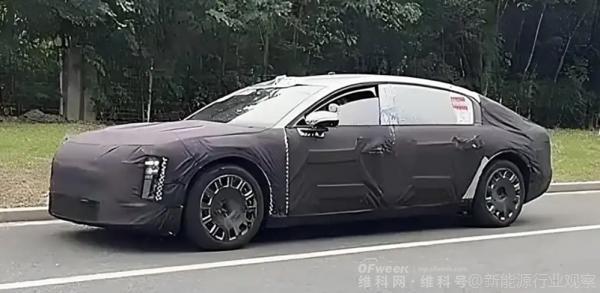
Image/Junjie spy shot
Source/Internet New Energy View screenshot
Meanwhile, the domestic debut of the Zero Run B10, equipped with advanced intelligent driving configurations such as the 8295 chip smart cockpit, 8650 intelligent driving chip, and LiDAR, will also be its biggest highlight.
Traditional brands are not to be outdone. As we all know, intelligent driving has always been a weakness for sales champion BYD, and BYD rarely makes a big deal out of attracting fans through intelligent driving. But this time, by hopping on the 'ride' of Huawei's Qiankun ADS 3.0 intelligent driving system, it has elevated the attention on its high-end model, the FANGCHENGBAO Leopard 8, to a new level.
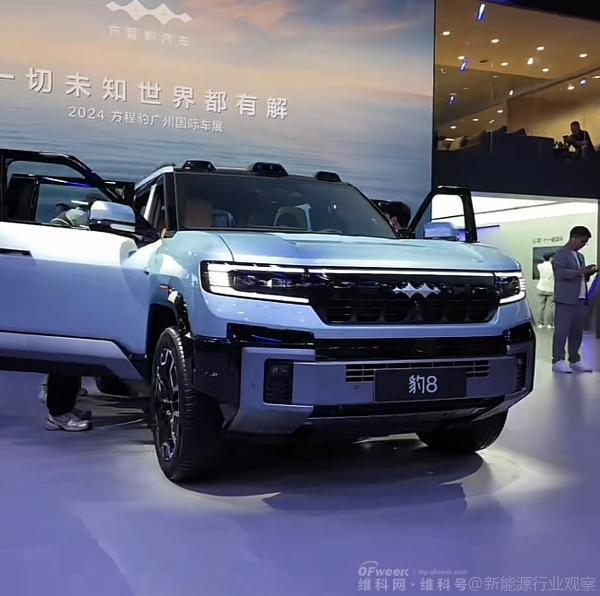
Image/FANGCHENGBAO Leopard 8
Source/Internet New Energy View screenshot
In addition, the luxury car brand Mercedes-Benz used the term 'most significant' to describe its advanced intelligent driving technology released at the Technology Day and stated, 'This is the first 'mapless' L2++ full-scene intelligent driving technology for luxury brands.' Audi A5L will also use 'Huawei Advanced Intelligent Driving' for product promotion and marketing.
2. 'Advanced Intelligent Driving is Indeed Appealing, but I'm Not Willing to Spend More Money'
Obviously, advanced intelligent driving technology has become a new 'means' for automakers to compete for market share, and major brands are investing heavily in this field to stand out in the fierce market competition. Entering 2024, the investment of major automakers in advanced intelligent driving has become increasingly evident.
Especially after the end-to-end large model has achieved mass deployment, intelligent driving technology also represents the competitiveness of automakers in a certain sense.
However, unlike automakers busy equipping models with more advanced intelligent driving technology, although consumers also want to experience more advanced technology, the attraction of advanced intelligent driving is greatly reduced when faced with purchase prices that can easily reach tens of thousands.
According to incomplete statistics from New Energy View, mainstream automaker brands currently on the market, including NIO, Li Auto, XPeng, Geely, Huawei, and AITO, all require consumers to pay extra for their advanced intelligent driving solutions.
For example, the one-time purchase standard price for Huawei's ADS advanced function package has been adjusted from a limited-time discount of 36,000 yuan to 30,000 yuan. Additionally, starting from November 11 and lasting until November 30, for all users who have not activated the 'one-time purchase' advanced function package, Huawei's advanced intelligent driving package subscription service has been reduced from the original price of 720 yuan/month to 199 yuan/month.
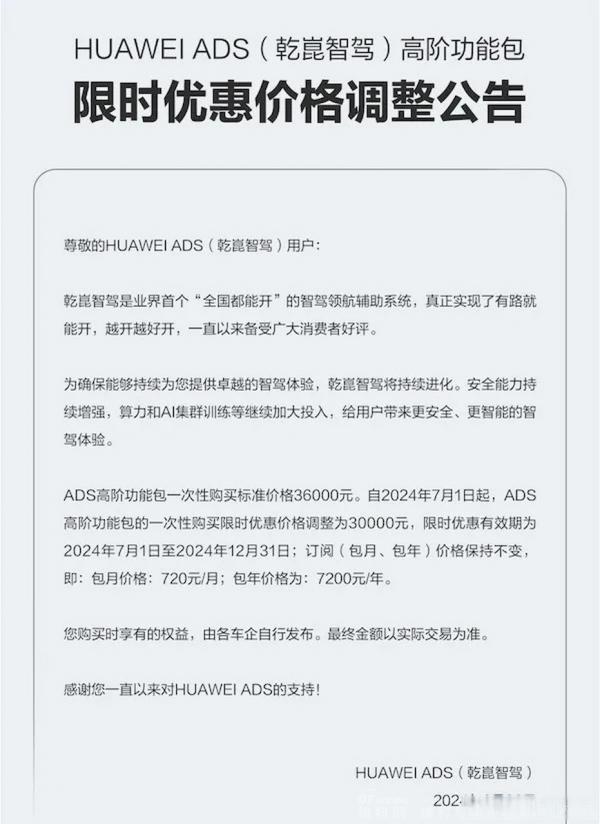
Image/HUAWEI ADS price
Source/Internet New Energy View screenshot
Brands such as AITO and Wenjie, equipped with Huawei's ADS advanced function package, also charge 30,000 yuan for the purchase of Huawei's Qiankun ADS lifetime advanced function package. However, the difference is that purchasing AITO models entitles customers to a 20,000 yuan intelligent driving subsidy, equivalent to an additional payment of 10,000 yuan.
Of course, the prices of other automakers' advanced intelligent driving solutions are also comparable. Among them, the optional price for XPeng's XNGP is 20,000 yuan; the buyout price for Geely's ASD advanced intelligent driving package is 29,900 yuan, with a limited-time discount price of 4,999 yuan and a monthly subscription price of 599 yuan; although NIO has introduced a policy of giving away NOP+ with car purchases, it is only a limited-time free experience and not permanently free, with a monthly fee of 328 yuan; Xiaomi's Pilot Pro has a buyout price of 18,000 yuan, and Pilot Max has a buyout price of 26,000 yuan.
Although Li Auto does not separately 'sell' advanced intelligent driving, taking Li Auto L6 as an example, the price difference between the Pro and Max versions of L6 is 30,000 yuan, and the main difference between these two versions lies in the different configurations of the intelligent driving system, with the latter providing a higher level of intelligent driving functions.
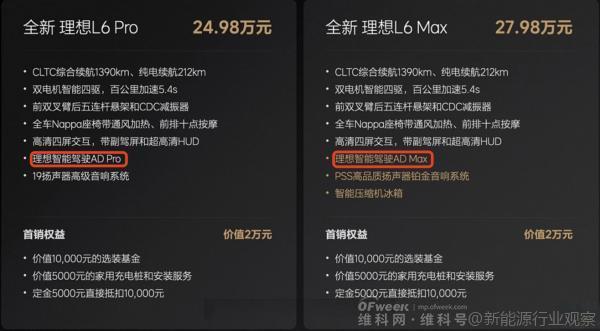
Image/Li Auto L6 Pro/Max
Source/Internet New Energy View screenshot
Although automakers are constantly adjusting their pricing strategies to allow more consumers to experience advanced intelligent driving, this pricing model still limits the popularization of intelligent driving technology to a certain extent, especially among price-sensitive consumer groups.
According to the 2024 McKinsey China Automotive Consumer Insights Report, although Chinese consumers' acceptance of intelligent driving is increasing, their willingness to pay for it has declined. Among the respondents, the proportion of users willing to pay for intelligent driving has dropped from 42% in 2022 to 28%.
'Intelligent driving technology is indeed appealing, and driving with it is also very cool, but if I have to pay extra, I definitely wouldn't want to try it,' joked veteran driver Linda, who considers herself a 'free rider' of intelligent driving and doesn't want to spend an extra cent.
Linda bluntly stated that most consumers surely hope that the new cars they purchase will have smarter and safer intelligent driving technology, but paying tens of thousands of yuan at once is still somewhat unbearable for ordinary families.
Ms. Cai also believes that the cost of advanced intelligent driving is high. 'I think intelligent driving can make driving easier and more relaxed for us and is worth investing in, rationally speaking. Of course, it also depends on how much one needs to pay for intelligent driving technology. If it's too high, it will definitely deter people,' she said.
'After all, for most people, a car is still a means of transportation, not a high-tech toy,' Ms. Cai added.
Of course, not everyone is unwilling to pay for advanced intelligent driving.
'I think the future trend is towards intelligence, and I'm willing to pay for this new technology. Although it seems expensive now, I believe that as technology advances, costs will gradually decrease, and the price will become more affordable,' said Mr. Li.
Overall, consumers have mixed views on advanced intelligent driving technology. Although some people are indeed willing to pay extra for a more convenient driving experience, many more are hesitant.
3. Free Advanced Intelligent Driving: The Next 'In-House Competition' Direction for Automakers?
It is undeniable that useful and fan-attracting advanced intelligent driving can indeed bring a certain amount of traffic to automakers. However, the high price currently makes it difficult to truly impress consumers.
Based on this, if automakers want to increase sales through advanced intelligent driving, price reductions or free offerings are an inevitable trend.
In fact, some automakers have already taken the lead.
Recently launched XPeng P7+ and Zeekr 7X both come standard with advanced intelligent driving, meaning consumers no longer need to select, subscribe to, or pay extra for these features when purchasing these models.
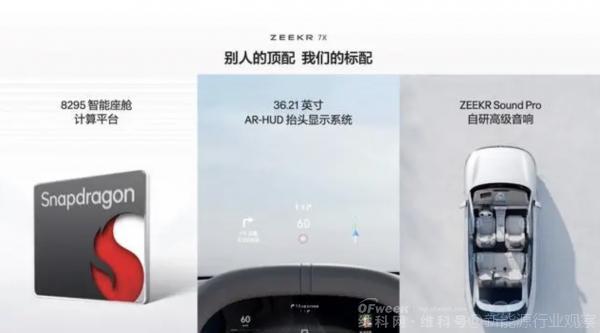
Image/Zeekr 7X standard intelligent driving
Source/Internet New Energy View screenshot
According to data released by XPeng, this has also brought significant orders to XPeng. It is reported that XPeng P7+ surpassed 10,000 orders just 12 minutes after going on sale.
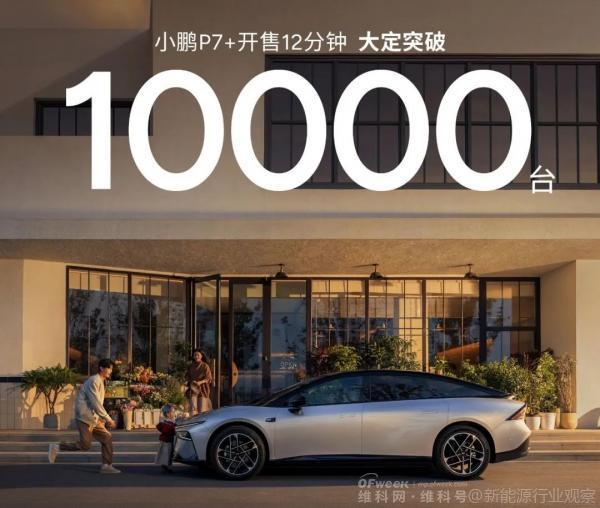
Image/XPeng P7+ 10,000 orders
Source/Internet New Energy View screenshot
Regarding this, an industry insider analyzed that this achievement is not surprising. After all, the ability to experience advanced intelligent driving for free is one of the important factors influencing consumers' purchase decisions.
The insider also emphasized that although automakers are still charging extra for advanced intelligent driving, the trend towards free offerings is inevitable. 'In addition to consumers' willingness to pay, the maturity of technology, market trends, and corporate strategies all determine that in the future, advanced intelligent driving will become more affordable.'
As the insider mentioned, with the maturity of technology, the costs of core autonomous driving hardware, such as high-resolution cameras, LiDAR, and millimeter-wave radars, as well as software aspects like smart parking, NOA, and ADAS, will gradually decrease, providing a solid foundation for the popularization and free offerings of advanced intelligent driving.
Market trends also require automakers to do so. Consumers are increasingly valuing the level of intelligence in new energy vehicles. Especially in the red ocean competition where the penetration rate of new energy vehicles in China has exceeded 50% for three consecutive months, in order to attract consumers and further capture market share, offering free advanced intelligent driving is an important market strategy for automakers.
In addition, it is also a common goal for domestic automakers to make advanced intelligent driving not exclusive to high-end models but truly achieve 'intelligent driving equality.' This is not only conducive to the popularization of advanced intelligent driving technology but also can better promote the progress of the entire industry.
From this perspective, with the maturity of autonomous driving technology and the reduction of costs, free advanced intelligent driving is likely to become the next direction of in-house competition for automakers.

